The Etruscan Necropolis: Part 2
Part 1 | Part 2
Bailey, Vincent, and Matty stood on the brink of the stone ledge, looking out onto what Bailey had thought was a cistern. Approximately 20 feet away, Jack was treading water. In the murky depths beneath his feet were those uncanny lights.
“These lights are brighter on the other side of those pillars,” Jack observed. “And there’s a big roundish room on that side too.”
“You mean a rotunda?” Vincent asked.
“I don’t know what a rotunda is,” the Arizonan said, spitting water out. “But it’s roundish. . . Hey, this water tastes sweet!”
“Don’t drink the water!” Matty yelled. “It might be toxic!”
“He’s right, Jack,” Bailey said. “If you die, we’re all in a heap of trouble. We won’t be able to get your body back up to the surface.”
Disregarding their admonitions, Jack dove under again and wasn’t seen for several minutes. The three mumbled curses as they heard the athlete splashing around on the other side of the colonnade. Eventually, he swam back.
“It’s easier to see underwater on that side because the lights are really bright there. The whole area underwater is as big as a basketball court. I think that where you fellas are standing is a continuation of the room. You’re on a balcony of some sort.”
“What?” Bailey asked, looking down.
Jack shook his head in awe, not having the technical vocabulary to describe what he had seen. He swam between the pillars again. His booming voice echoed under the vaulted ceiling.
“The pillars go down about another 30 feet. There’s a huge well sunk in the floor underwater. The lights. . . I dunno how to explain it. It’s like the lights are inside of bubbles.”
To everyone’s surprise, Vincent switched off his flashlight and laid it on a flat rock close by. “I want to see this,” he said. He began to disrobe.
“I think Matty’s right,” Bailey ventured. “We should probably go back.”
Vincent folded each article of clothing as he removed it. Since his undershorts were made of satin and would be ruined in the water, he stripped down to the buff.
Matty kept his beam on Vincent as he undressed. “Christ,” he mumbled, “I never imagined I’d be standing in the dark shining a light on your pale skin as you stripped down buck naked.”
“I never ask you to keep the light on me,” Vincent replied. “I think it rather tellin’ that you feel so compelled to verbalize your outrage, Maggie. Methinks the lady doth protest too much.” He crouched down and eased himself into the water. “It’s not cold. Rather warm, actually.”
He swam out to Jack. The two of them disappeared beyond the columns and were gone for several minutes. Matty and Bailey heard them engaged in a rapid-fire discussion about what they were looking at. When they reappeared, Vincent was in front of Jack, swimming as quickly as he could toward the ledge.
“What’s wrong!” Matty exclaimed.
“Nothing!” Vincent said. “Bailey, this is going to be the biggest discovery in the history of archaeology. That well Jack mentioned is filled to the brim with a heavier viscous liquid. It looks like a semitransparent oil of some kind. I think the lights are an electrical phenomenon caused by the well. The lights are wrapped up in bubbles, as Jack said. And the bubbles keep rising out of the well and sinking back into it again.”
“We’ve already established you know nothing about science,” Matty quipped.
Vincent reached his hand up. “Hand me the flashlight, Matty!”
“Well, well, well,” Matty said as, he grabbed the flashlight indicated. “Wonders never cease. You didn’t call me Maggie this time.”
Ignoring him, Vincent addressed Bailey. “The room on the other side of the colonnade is, in fact, a rotunda. It has a domed ceiling. I could make out writing engraved between the squinches. The writing looks Greek. But the Etruscans used Greek letters in their alphabet. I think I can recognize the glyphs that are unique to Etruscan, such as ‘S’ and ‘F’, but I’ll need more light.”
Matty turned to Bailey because he wasn’t sure whether he should give Vincent the flashlight if he was going to take it out in the water with him.
“Go ahead and give it to him,” Bailey said. “Be careful, Vincent! If you drop it, we only have one flashlight left.”
“We also have Maggie’s lantern,” Vincent observed, accepting the flashlight from Matty’s hand. He turned it on and shined it into the Irishman’s eyes. “You’re the mapmaker. You need to get in here, so you can see this and make a diagram of it when we get back.”
“I don’t feel comfortable stripping down in front of you.”
“What?” Bailey asked.
“Are you serious?!” Vincent sneered. “If it’s any consolation, I’m not particularly attracted to cowardly Irishmen, Maggie of the Knockin’ Knees.”
“Are you jagoffs comin’ or what?!” Jack shouted from behind.
Vincent did a one-arm dog-paddle back to Jack, holding the flashlight high overhead with his free hand.
Matty grudgingly bent over to remove his shoes. Once he had taken off all of his clothes but his boxer shorts, he turned his flashlight off and laid it on top of the pile. He dipped his big toe tentatively into the water.
Bailey exhaled. “Since I’m the one running this, I better join you fellas.” He went to the corbeled arch and set the lantern down on the stone at its threshold.
He heard Matty jump in feet first.
Bailey raised the lantern’s flame, knowing this would deplete the fuel quicker but wanting to ensure they had a clear beacon in case Vincent dropped his flashlight or the submarine glimmers suddenly winked out.
When he turned around he noticed that without Matty’s flashlight on it was quite dark. He assumed Matty was treading water in the shadows close to where he’d jumped in 30 seconds ago. He was about to take off his shoes, when it occurred to him that he couldn’t see Vincent’s flashlight beam raking the ceiling.
He went to the ledge.
“Matty?” he whispered. He couldn’t see him anywhere.
He raised his voice. “Vincent?! Why’d you turn the flashlight off?! You didn’t drop it, did you?!”
Silence.
He wiped his mouth. “Jack?!—Matty?! Stop foolin’ around!”
In the depths he saw a rolling black cloud, backlit against the lights.
“Fellas?!”
He ran to Matty’s clothes and grabbed the flashlight. He switched it on and trained the beam on the surface of the water. Bubbles rose beside one of the columns. He shone the light on it and froze in shock.
Vincent’s bloody white leg rose to the surface, kicking spasmodically at the knee. Something breached under Bailey’s feet. He pointed the beam down. Matty’s severed head was bobbing in the water, eyes wide in horror.
Bailey sprang backwards and fell on his back, clutching the flashlight in a death grip so he didn’t break it. Tremblingly, he sat up and raised the beam before him. The kerosene lantern behind him cast a bat-like shadow across the vaulted ceiling.
Suddenly, it was as if automobile headlights had snapped on. He squinted at the thing before him.
Less than 20 feet away loomed a humanoid head, black and squamous. Its face was taller than the tallest man Bailey had ever seen. Unblinking saucer eyes transfixed him with a burning luminosity that paralyzed every part of his body and bore into his very soul. A succession of images flooded his reeling mind.
Jack sat across from a girl in a diner in Scottsdale. She had just told him she was pregnant. “I guess you’re in trouble then,” he said, “’cause it ain’t mine.” — “You’re the only man I’ve ever been with, Jack. You swore you loved me.” — “Like I said, your trouble ain’t mine. My daddy’s one of the most powerful attorneys in Phoenix. You try to drag me into your problem, and he’ll destroy you and your whole podunk family.”
—A sheet was drawn over the dead girl’s face. She lay on a bed in an unlicensed clinic outside of Tucson.
Matty gazed down on the Magnificent Mile from his mother’s condominium. “Aunt Deidre,” he said, “if I don’t return to Yale this fall, I won’t complete my studies. The head of the firm said he can’t take me on if I don’t have my architectural degree.” — The red haired woman shook her head. “You swore on your father’s grave, Matty, that you’d take care of your mother if she couldn’t take care of herself. You’re the only one she has left. She’s not my responsibility.”
—“I’m so sorry, Mama,” Matty said, exiting his mother’s room, clutching the vial of rat poison.
Vincent stood in his penthouse suite in a luxury casino in Havana. A handsome young man stood across from him. “While at university,” the man said, “I denounced the corruption of Maj. Gen. Batista and his cronies. I never would’ve imagined he would become president.” — Vincent stirred his mojito. “And this pertains to me, how?” — “You said you liked me. You swore you would take me with you to America.” — “Honey, I say a lotta things when I’m in my cups. I’ve only known you a week. Whatever’s goin’ on between you and your new Padrón is of no concern of mine.”
—The handsome man fell prone into the shallow grave, smoke rising from the bullet hole at the back of his skull.
As the strange visions passed, Bailey felt his breath return to him. Again he was able to move his limbs.
Two flaps opened beneath the monster’s eyes like the gills of a fish, ejecting a clotted gore that drizzled down its gray cheeks and dripped into the water.
Bailey realized that he had been manipulated by this chthonian terror beneath the cobbled lanes of Orvieto. The discovery of the fissure in the cave had been no accident. Through the strange workings of an inscrutable and otherworldly intelligence, he and his colleagues had been lured into these subterranean chambers.
The actions of Jack, Vincent, and Matty had contributed to the deaths of three innocents, but in the eyes of the ancient creature before him, all that had mattered was that each man had violated an oath that he had sworn. The Etruscan god of the underworld had smelled their sin and hungered for their flesh.
The talons of the thing’s slimy hand clicked on the ledge only a few feet away from Bailey. But the fire in the abomination’s eyes had died down. With a groan, the head of Orcus sank lugubriously beneath the water, and the taloned hand disappeared shortly after.
Despite Bailey’s arrogance and overweening ambition—despite the unethical means by which he had been wont to achieve his selfish ends, the farmer’s son from Missouri had never broken an oath nor uttered a lie. The monster had lost interest.
In a state of utter stupefaction, Bailey fled through the arch, abandoning the lantern and taking with him only his flashlight. At the bottom of the rope, he turned the light off and placed it in his hip pocket. With a vigor born of panic, he rapidly scaled the shaft. He was an accomplished mountaineer, and used the rope only for balance and leverage.
When he stood again in the cave, every muscle straining and throbbing in agony, he looked around at the equipment that lay about. He plucked the pitons out of the rocks and bunched up the ropes, casting everything into the hole, including the black notebook in which he had recorded the fruits of his researches.
He kicked the gravel on the floor until the footprints were no longer prominent and the scene resembled the chaos and disorder the four of them had found the cave in when they had entered it hours before.
By the time he emerged from vault 12-A, dawn was breaking on the eastern horizon. He walked briskly to the trail leading up to Orvieto, pulling his shirttail from his trousers so he could wipe his flashlight free of fingerprints.
As he reached the albergo, the bells in the campaniles began to toll, signaling that it was time for lauds. The hotel had been reserved exclusively for the Americans participating in the excavation. The others had taken the train to Florence for the weekend. But to his surprise, Professor Holcomb sat in the lobby under a shaded electric floor lamp, reading a monograph.
He looked up and seemed taken aback by the strange appearance of his discombobulated graduate student.
“Good morning, Bailey.” He closed the book.
“Good morning, Professor Holcomb. I thought you went to Florence with the others.”
“I was feeling a bit under the weather. . . Are you in training for something?”
“Yes,” Bailey said. “A foot race.” He felt his throat tighten as he uttered the lie.
“I see,” the professor replied, glancing at the flashlight and filthy clothes. “I didn’t think it common to train for such things in long trousers.”
“I don’t have athletic shorts with me,” Bailey said. “If you’ll excuse me. I need to bathe.” He headed up the carpeted staircase to his room, each step creaking.
At the end of the landing was a small lavatory with a toilet and claw-footed bathtub. The lavatory was shared by all the male students. (Professor Holcomb had a private suite on the ground floor.) Bailey was grateful that the others were away. No one would be banging on the door asking to be let in. He was afraid that he was about to have an emotional breakdown, which turned out to be the case.
He returned to his room in his robe and silk pajamas. He hung the sign on his doorknob to indicate that he did not wish to be disturbed. He did not leave his room for the remainder of the day. He used the time to prepare himself mentally for Monday morning, which came all too soon.
He tried to look calm as he descended the staircase and entered the breakfast room. The eight students who had gone to Florence had returned and were chattering amiably about the trip. Peter, who was a bit of a wag, drew unflattering comparisons between the splendors of what they had seen in the Uffizi and the cheap knockoffs of Titian and Caravaggio that adorned the walls of the breakfast room.
Bailey took his assigned seat at a narrow table across from where Jack should have been. He told the proprietress that he didn’t want coffee; just a glass of freshly squeezed lemon juice and sugar cubes to cut the sourness.
Professor Holcomb walked in. The students went silent.
“I’m afraid you will need you to return to your rooms. Breakfast will be served to you there. We will not be going down to the excavation today.”
A carabiniere darkened the door to the breakfast room.
“Someone needs to tell Jack,” Lydia remarked.
“Also Matty and Vincent,” Peter added. “They’re Catholic and might be at Mass.”
“Go to your rooms now!” Professor Holcomb snapped.
Quietly, the students rose and filed out, looking at one another in bewilderment.
Professor Holcomb touched Bailey’s arm. “Not you.”
“What?” Bailey went pale. The professor had not addressed him by name.
“Where are your friends?” he asked.
“What do you mean?”
The carabiniere removed his hat and spoke in fluent English. “Signore, the hotelier saw you and your friends depart the albergo late on Saturday night. He indicated that the four of you were carrying mountaineering equipment and a lantern. The maid says your friends’ beds had not been slept in when she went to turn them on Sunday morning.”
Professor Holcomb interrupted. “What were you doing yesterday morning when I saw you at dawn? Your face was flushed and you were acting odd.”
Bailey was too terrified to speak.
“Did you and your friends encounter malefactors?” the carabiniere asked. “Communists who threatened you? Criminal elements?”
“I swear to God,” Bailey said, “I don’t know what’s happened to my friends.” No sooner had he said this than in his mind he saw the monster peering up like an eel from the depths of the underwater well that Bailey had never seen. The monster seemed exultant. A tear rolled down his cheek. “Am I my brothers’ keeper?”
Professor Holcomb sat before a panel of his peers in a closed hearing in New Haven, Connecticut. Among the attendees were the provost, the college dean, and three attorneys representing the families of Vincent, Matty, and Jack.
Two Bureau men in black suits stood near the door smoking.
“The moment the hotelier notified me that there were no indications the three had slept in their rooms on Saturday night, I alerted the local authorities. Even if the boys had simply gallivanting around, I was concerned their behavior might cause a scandal and reflect poorly on the university.”
“What happened after you alerted the authorities?” one of the attorneys asked.
“An investigation was launched immediately. The Italians have taken the matter quite seriously due to its political implications. They suspect the missing boys have either been kidnapped by Leftists or are the victims of foul play.
“The behavior of Bailey was suspect. But without concrete evidence, the chief of the carabinieri was wary of taking him into custody due to the embarrassment it could cause on both sides of the Atlantic if the story of his detention made it in the press.
“It has been suggested that the boys might have been involved in a mountain climbing accident, and that Bailey was either directly or indirectly responsible. But since no bodies have been recovered, that is only speculation.”
“My understanding,” the dean said, “is that the students were immediately sent home for their own safety, and the program has been shut down indefinitely.”
“That is correct.”
“Excuse me,” one of the Bureau men said. All eyes turned to him. “You say the students were sent home. But this kid, Bailey, wasn’t with them. Where’d he go?”
Professor Holcomb removed his glasses. “The students were commanded to stay in their rooms. I informed them that we would be taking the train to Rome on the following day. Detectives were placed at the albergo’s access points. But Bailey managed to climb down from his window that night and escape. A nun claims to have seen him on the steps leading down to the Etruscan necropolis shortly before midnight.”
The Bureau man took a long drag on his cigarette.
Professor Holcomb turned again to the panel. “Bailey left his wallet, travel papers, books and other personal effects in his room. He took with him only a flashlight. Curiously, he bookmarked a page from the Aeneid in his Loeb edition of Virgil’s works, and underscored two lines of verse. He left the book on his bed. I quote for you Dryden’s translation of the passage for the benefit of those present who do not know Latin: The gates of hell are open night and day / smooth the descent and easy is the way.”


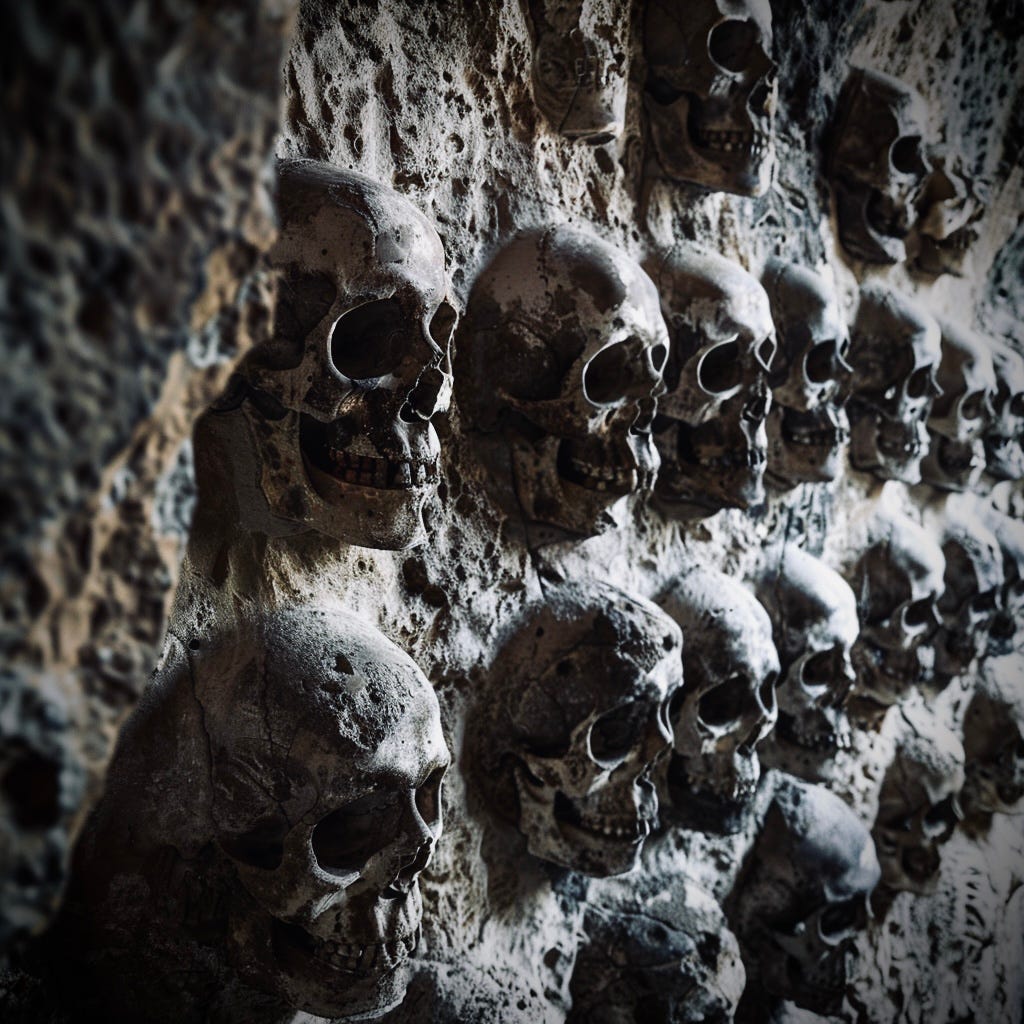
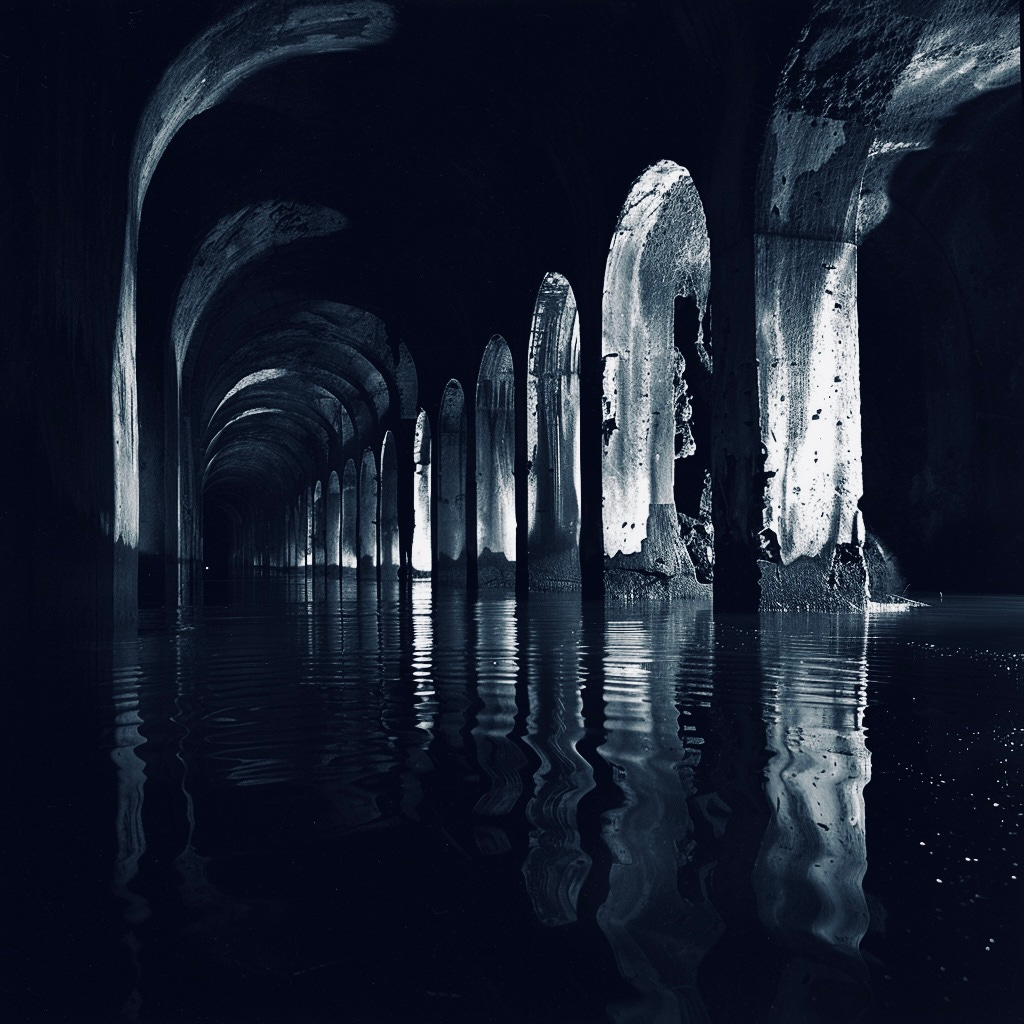
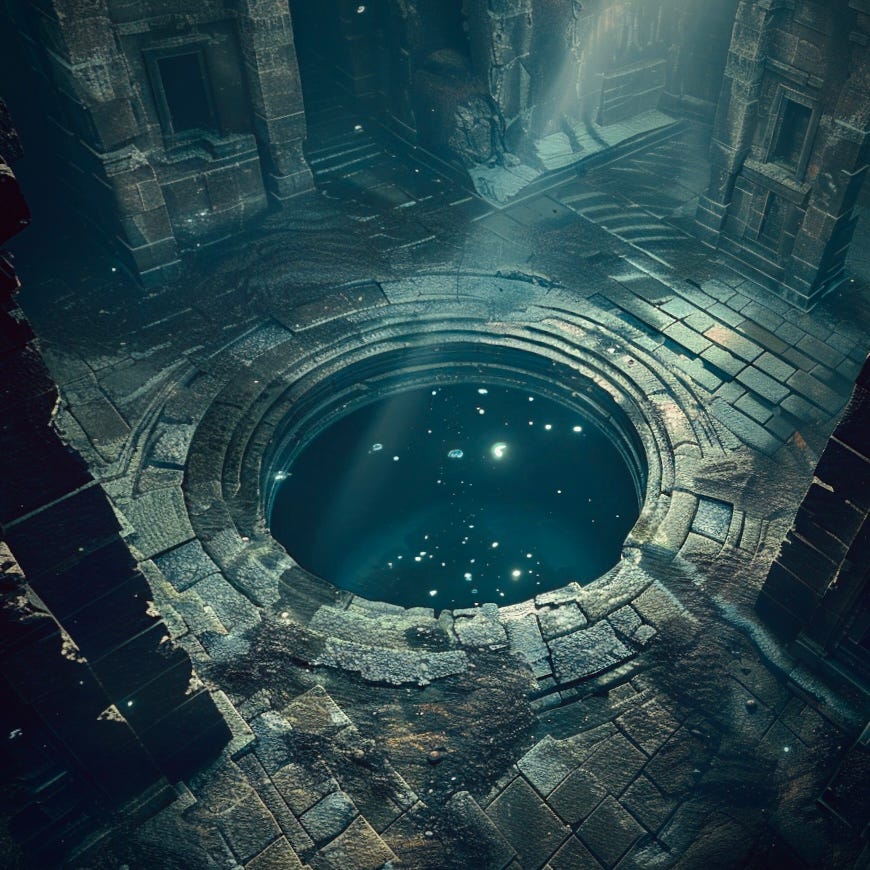
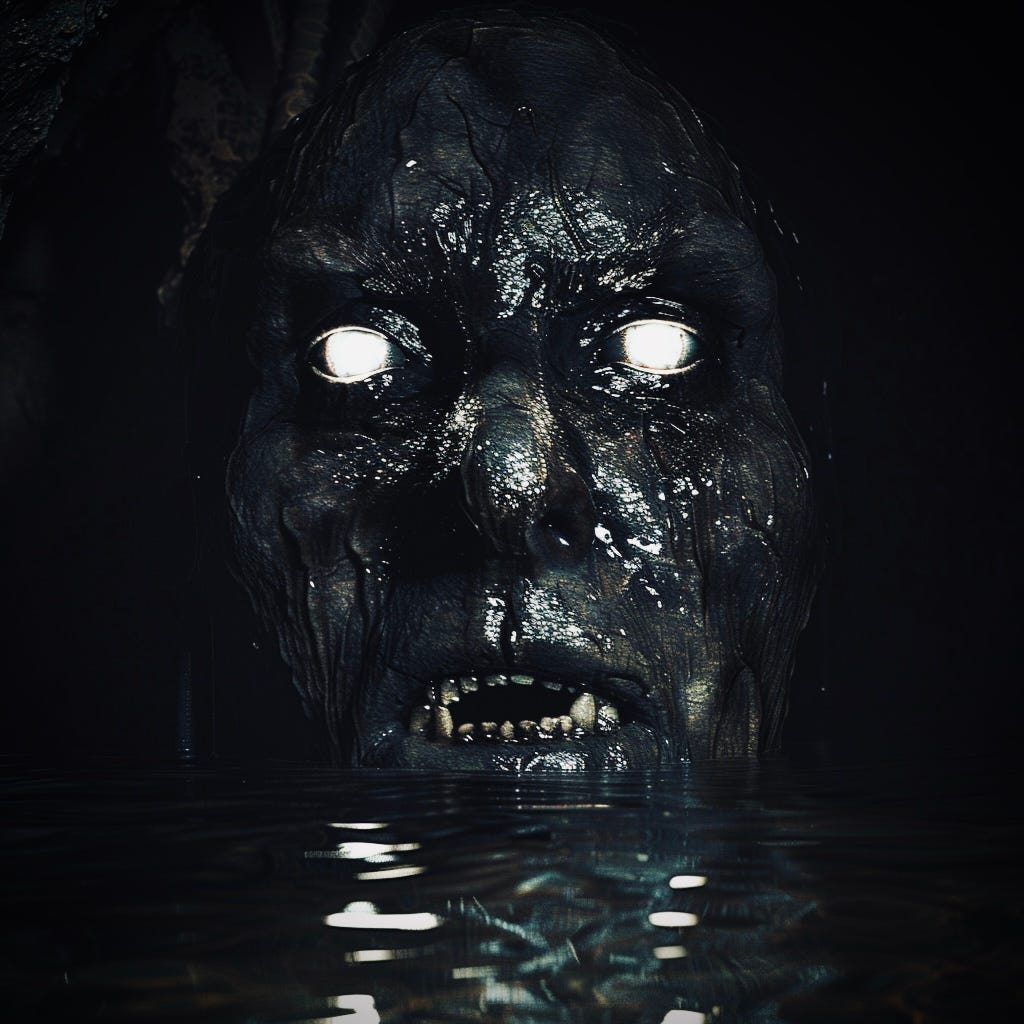
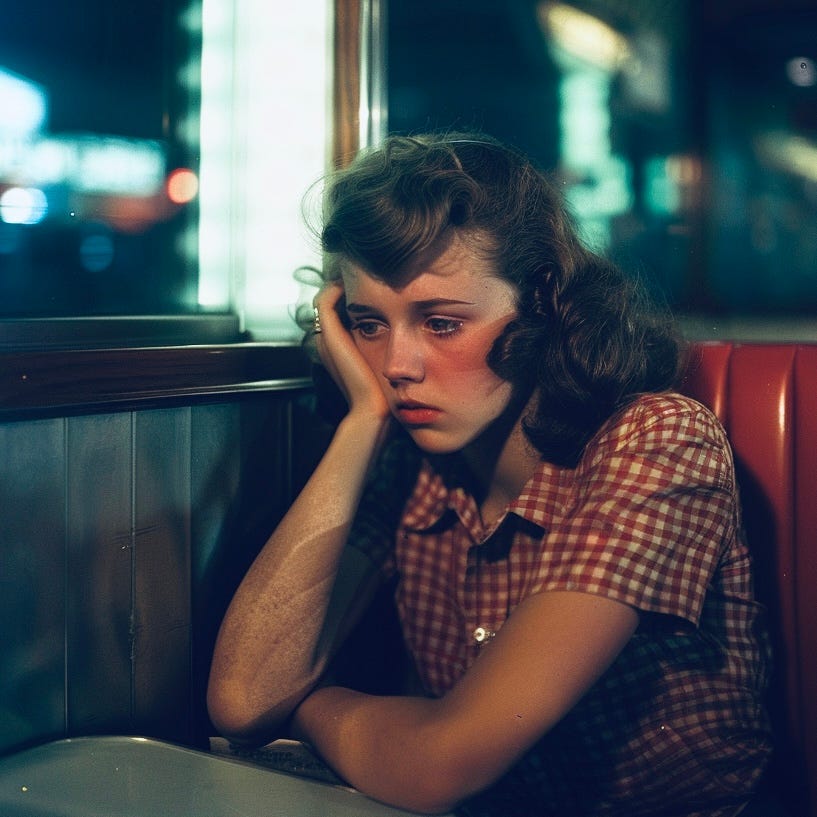
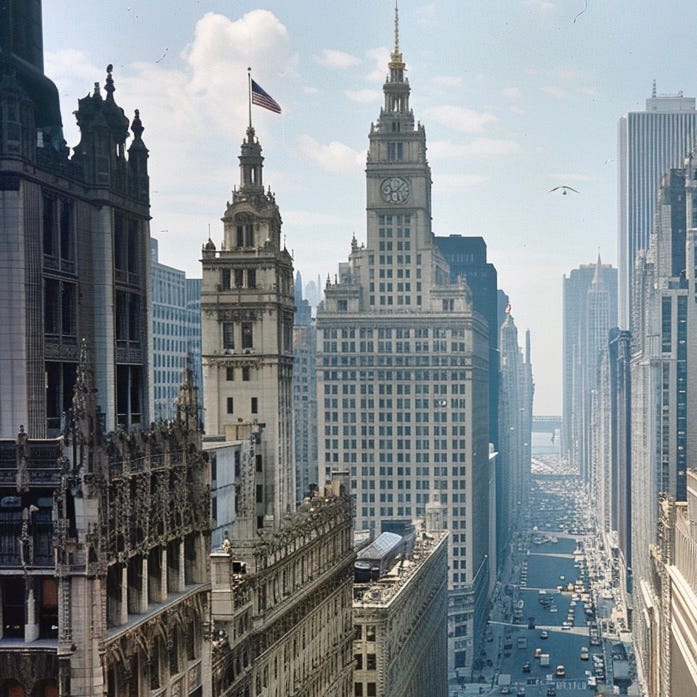
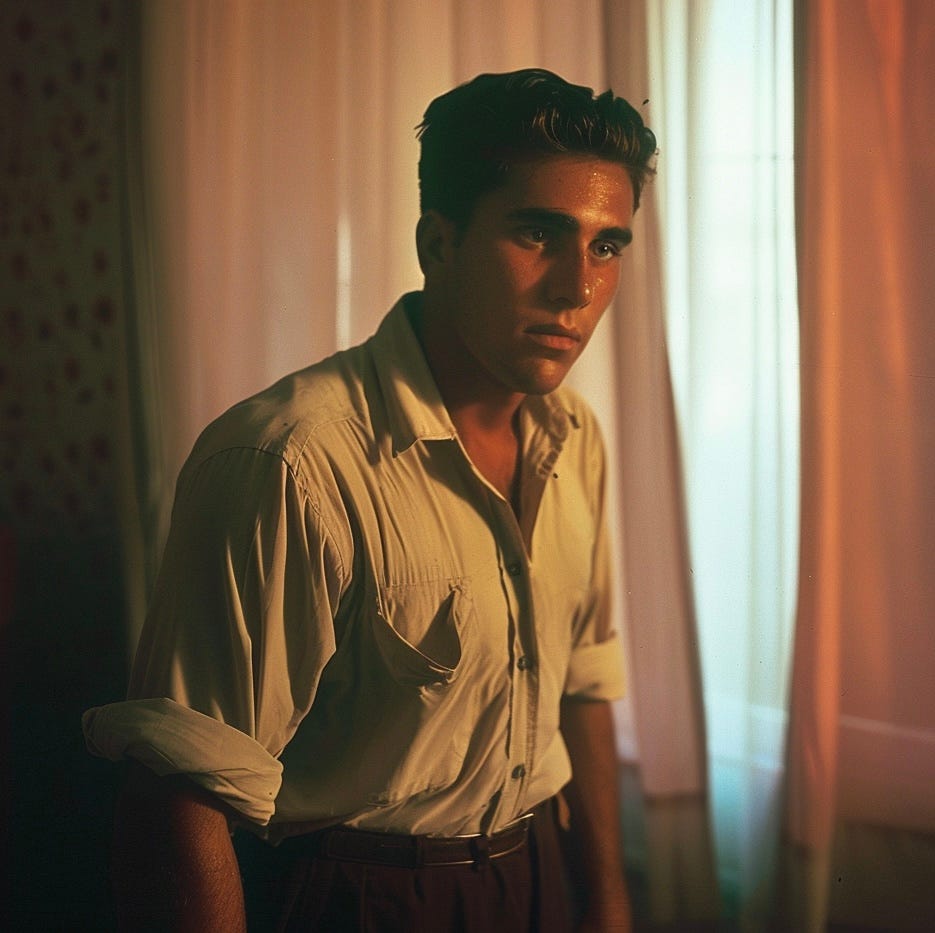

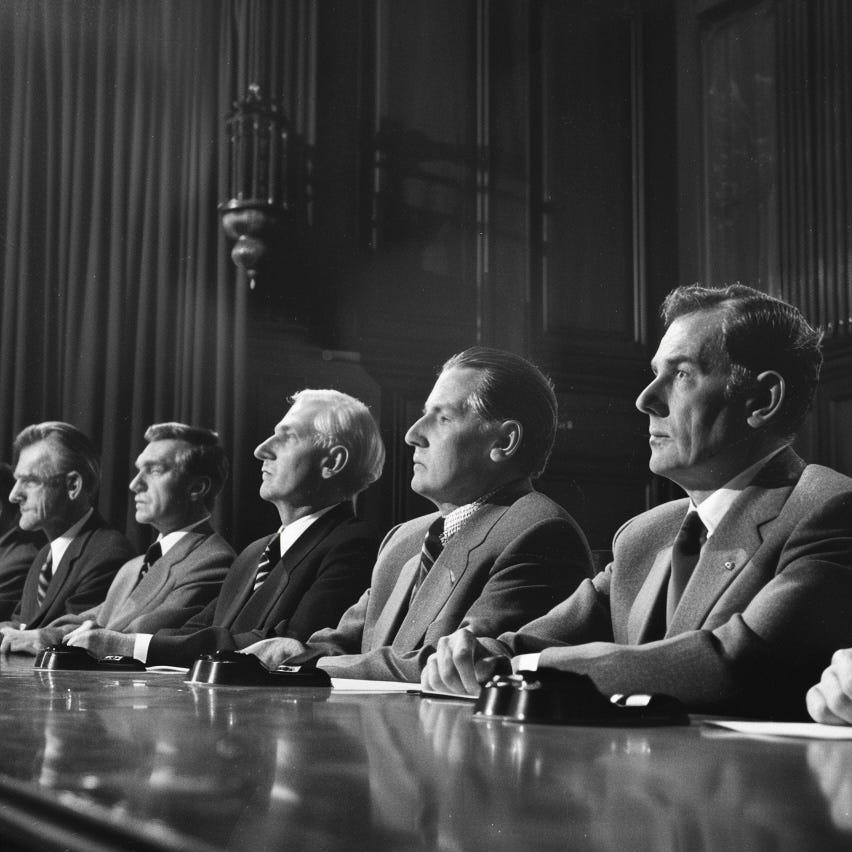

That ending gave me chills! Really nicely done. I've been fascinated by the priority placed by pagan societies on enforcing oaths and honesty (and the divine beings and measures dedicated almost exclusively to them), as these are the glue that binds a society. I find it curious that no such rule is prioritized among, for example, the Ten Commandments, but numerous prominent pagan gods had punishing oath breakers as their main function. I imagine many of us are still haunted and hunted by them on some level . . .
Great work to round this one off man! Are you collecting all your stories into a book when you have enough?